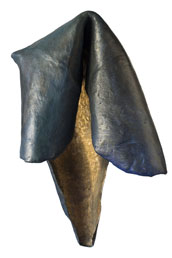Pages: 1 2 3 4 5 6 7 8 9 10 11 12 13 14 15 16 17
Poetry, Fiction, Memoir, Philosophy and Comic Reviews
Incitements
by Sean Howard
Hallifax, NS: Gaspereau Press, 2010
$17: 95
As Ecclesiastes sagely notes, everything has its time and place, and so I am finally able to review Cape Breton poet Sean Howard’s work, though he was kind enough to write to me in January 2010 and send me a copy of his first book, Local Calls (Cape Breton University Press, $17.95), which I have only just read.
Happily too, Gaspereau Press has just issued Howard’s second verse collection, Incitements, and so I am able to talk about both books together. Note that Gaspereau Press also publishes my poetry.
Originally from England, Howard now makes his home in Main-a-Dieu, NS, and teaches at Cape Breton University. He holds a doctorate in Peace Studies, and so is quite grounded in matters of nuclear disarmament, international security, and politics globally.
The title of his first collection arose from an exchange between himself, an immigrant, and a provincial wit, who told him that, if he ever “needed to call Paradise,” he’d “come to the right place.” Why? “Local calls are free.”
Though impressed by his interlocutor’s jest, Howard seeks, in his first book, to move beyond outhouse pastoralism, and he does, largely by stripping the poem to its essence: no words but those needed. Period.
January 9, 2007, is remarkable to Howard for the “comb- / ed / lines, / foam / and / sky, / harp / strung/ on / the / tide.” He makes associations that, invisible at first, are later vivid. Here the lines of shore foam and intervening reflections of sky compose a harp. January 12, 2008, sees Howard jot, “oar- / weed, / blade / spill- / ing, / light / a- / gainst / the / stone,” and you can see that light flashing against rock. On April 28, 2008, Howard glimpses “soft / pen- / cil, / her- / on / rub- / bed, / clean / a- / gainst / the / mist.”
Yes, there’s a haiku-like sentience and subtlety, as the fine poet-critic Peter Sanger notes in his introduction. Yes, we can imagine a heron standing, pencil-lean, as mist closes in. But what if we read the middle lines as “her / on / rub / bed”? Well, then, vistas of unintended meaning open – as well as, perhaps, unintended consequences.
And that’s okay: That’s the purpose of these poems. We’re supposed to think about the tendency of words to refer to more than they seem, at first sight, to say.
On November 18, 2008, the poet glimpses, “pose / held / mock- / ing / bird, / gull / a- / bove / the / cr- / oss.” Birds do roost, willynilly, on statues and crucifixes, and sully these roosts with their insulting guano. But Howard reminds us, with that “oss” that the crucifix often is stationed over bones (to which the Latin word “os” applies.)
Though his poems are as brief as crocus, they are meant to be meditated upon. December 3, 2007: “script / flow- / ing, / ink / on / stone, / geese a- / cross / the / moon.” What is silence? “God’s / bell, clear a- / cross / the / bay.”
The new book, Incitements, extends Howard’s classical brevity to the post-modern notion that poetry can be found in even in the writings of critics. Here Howard responds to three prose works: Sanger’s White Salt Mountain, Merritt Gibson’s Summer Nature Notes, and Hans Fallada’s novel, Every Man Dies Alone.
These poems are tricky; they demand concentration and learning that may be beyond the commitment or schooling of the casual reader. See “XXVI”: “Mi’kmaq slain; / the conquered // stars? Polestar / moon. Chopp- // ing the page / from the / wood.”
What to make of the almost casual reference to murdered Mi’kmaq? Are they “the conquered // Stars?” It depends on how one takes the puns. “Chopp- / ing the page / from the // wood,” is a great image for writing, but can it do other work?
One can quibble over individual lines, but Howard is impressive – startlingly – at times. When he calls “Time … life on / Borrowed light,” you are in the hands of a master.
The compression that one finds in Howard is akin to that required for crossword clues (that are also often puns). “XIII” tells of “Waters liv- / ing off / the moon,” while 9/11 took place in a “sand-// castle sky.” Howard makes us see afresh just how language defines reality, but also how language remains peculiarly mysterious. We can’t enclose it: It is breath. It is poetry.





No Comments so far ↓
There are no comments yet...Kick things off by filling out the form below.